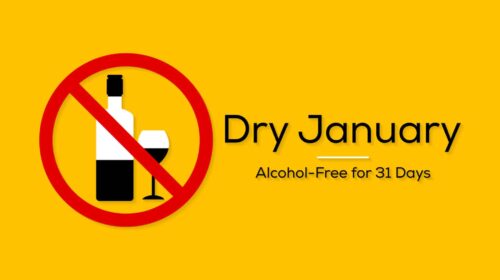“Wet Brain,” also known as Wernicke-Korsakoff syndrome, manifests as a constellation of physical and psychological symptoms, including mental confusion, ataxia(balance/gait disorders), and ophthalmoplegia (vision problems), rather than nutrition deficiency or altered mental state as standalone symptoms.
The underlying condition is a thiamine (vitamin B1) deficiency caused by chronic alcohol use, but sometimes malnutrition is also present. Wernicke-Korsakoff syndrome treatments generally involve thiamine replacement therapy alongside the management of alcohol dependence rather than addressing both simultaneously for long-term recovery.
What Is Wet Brain?
“Wet Brain” is a colloquialism for Wernicke-Korsakoff (WK) Syndrome, a clinical diagnosis for two related progressive neurological disorders. It’s caused by a long-term thiamine (vitamin B1) deficiency, which damages the brain.[1]
Most WK Syndrome cases are caused by chronic alcohol use, but there can be other non-alcoholic conditions, such as malnutrition.[2] Conditions that involve malnutrition or vitamin B1 deficiency can include cancer, AIDS, excessive vomiting, anorexia nervosa, dialysis, and even recent gastrointestinal surgery can be aggravating factors.
WK Syndrome is often misdiagnosed or missed altogether. One study found that 68% of alcoholics with WK Syndrome went undiagnosed, as did 94% of non-alcoholics with WK Syndrome.[3] It is estimated that around 1-2% of the United States population suffers from WK Syndrome.[4]
Criteria for Alcohol Use Disorder
A licensed physician must make an official alcohol use disorder (AUD) diagnosis using the DSM-5. Two (2) of the following eleven (11) criteria need to be present within 12 months for an AUD diagnosis:[5]
- More alcohol is consumed than desired.
- Alcohol use cannot be reduced or controlled.
- Much time is spent obtaining, using, and recovering from alcohol’s effects
- Craving alcohol
- Neglect of personal, familial, and professional obligations.
- Alcohol continues to be used despite clear social damage.
- Hobbies are given up to obtain, use, and recover from alcohol’s effects.
- Putting oneself in physically dangerous situations (such as driving a car) while experiencing alcohol’s effects.
- Continued use despite mental or physical disorders caused by alcohol.
- A need for increasing amounts of alcohol to achieve the desired effect or experiencing reduced effects when drinking the same amount (tolerance)
- The subjective experience of withdrawal symptoms when not using alcohol or the use of alcohol to prevent the withdrawal symptoms of not using it.
Alcohol’s Damaging Effect on the Body

Alcohol is a psychoactive substance that can be toxic at high doses. Drinking excessive amounts of alcohol affected at least 7.1% of US emergency room visits in 2020.[6] For people with alcohol-use disorder (AUD), consequent poor nutrition due to AUD can negatively impact a healthy gut’s microbiota.[7]
Once the proper balance has been thrown off, it’s difficult for the gut to absorb the right nutrients from food. When it can’t absorb enough thiamine over a long period of time, the chance of that individual developing WK Syndrome goes up dramatically.
Vitamin B1’s (Thiamine’s) Effect on the Body
Thiamine is a nutrient that plays a vital role in your body’s metabolism. When your body converts food into energy, thiamine is helping your body do it.
Vitamin B1 has a relatively short half-life, so you must regularly consume it to keep your metabolism in good working order.[8]
In particular, your brain cells need thiamine to synthesize several other enzymes. If thiamine is absent, these enzymes will not be created, and your brain cell’s metabolism will slow down. Your brain cells won’t be getting the energy they need to stay healthy.
This deficiency can lead to brain swelling (edema), loss of neurons, and even brain scarring (reactive gliosis).[9]
Stages of Wet Brain
“Wet Brain” has two stages: The early stage is Wernicke Encephalopathy Syndrome, and the late stage is Korsakoff Amnesic Syndrome. While some symptoms of the early stage are reversible with Vitamin B1 supplements, if it progresses to the later stage, it could be irreversible.
Wernicke Encephalopathy Syndrome
Some symptoms of the early stage of wet brain called Wernicke Encephalopathy Syndrome include:
- Mental confusion
- Tiredness, low body temperature, low blood pressure, or coma
- Erratic body movement and muscle tremors
- Vision issues
The lessening of Wernicke Encephalopathy symptoms is not a sure cause for celebration. Often, the mental symptoms of Wernicke Encephalopathy Syndrome can lessen, only to be replaced by Korsakoff Amnesic Syndrome.
Korsakoff Amnesic Syndrome
The late stages of wet brain, called Korsakoff Amnesic Syndrome, can be characterized by all the symptoms of the early stage, plus:[10]
- Irreversible memory impairments, including problems forming new memories and recalling memories.
- Specific long-term memories may vanish without explanation.
- Remembering events incorrectly
- Hallucinations
- Repeating both actions and speech
- Problems organizing coherent thoughts
- Decreased motivation and increased apathy
Symptoms of Wet Brain
The Caine criteria were developed to help screen for Wernicke Encephalopathy (WE) Syndrome, but they also work well for Korsakoff Amnesic Syndrome:[11]
- Nutritional deficiency
- Altered mental states such as amnesia, disorientation, and confabulation
- Vision Problems
- Balance or gait disorders
A licensed physician is needed to diagnose WK Syndrome formally.
How To Diagnose Wet Brain
Wernicke-Korsakoff Syndrome can be diagnosed through a combination of clinical symptoms, patient history, and diagnostic tests such as vitamin B1 levels and brain imaging studies. The medical history can include everything from lifestyle to alcohol use to nutrition. Tests for vitamin B1 and erythrocyte transketolase activity, which are both reduced by WK Syndrome, will be performed.
If the physician suspects WK Syndrome to be present, they can send the patient to get an MRI scan of their brain. This scan can show any deterioration of brain matter and its associated structures.
If the patient is diagnosed during the Wernicke’s encephalopathy stage, some symptoms may be reversible with prompt vitamin B1 treatment. However, if the condition has progressed to Korsakoff’s syndrome, the symptoms are generally not reversible.
Treatment For Wet Brain
While vitamin B1 supplements are the first-line treatment for wet brain, any underlying alcohol use disorder must be addressed for long-term recovery to be successful.
Alcohol use disorder (AUD) is a complex condition that requires a comprehensive treatment plan to address its multiple facets. Detox, medication-assisted treatment, therapy, and a supportive community are all needed to recover from AUD successfully.
We are Recovery Unplugged, and we are here to help.
We combine evidence-based treatments for alcohol use disorder with innovative musical practices to restore you to health. Our treatment team is laser-focused on giving you all the tools you could need to thrive once again.
Contact our admissions today to learn more about what we can do for you.
Choose Healing. Welcome To Hope.
Even if it seems like wet brain or alcohol use disorder is insurmountable, there is always hope at the end of the tunnel.
You have all the ingredients necessary to pursue a full life without addiction. Alcohol-use disorder got you this far. Don’t let it take another step.
Take back your life by seeking a compassionate addiction treatment center that wants to join you as a supportive partner in your recovery journey.

























